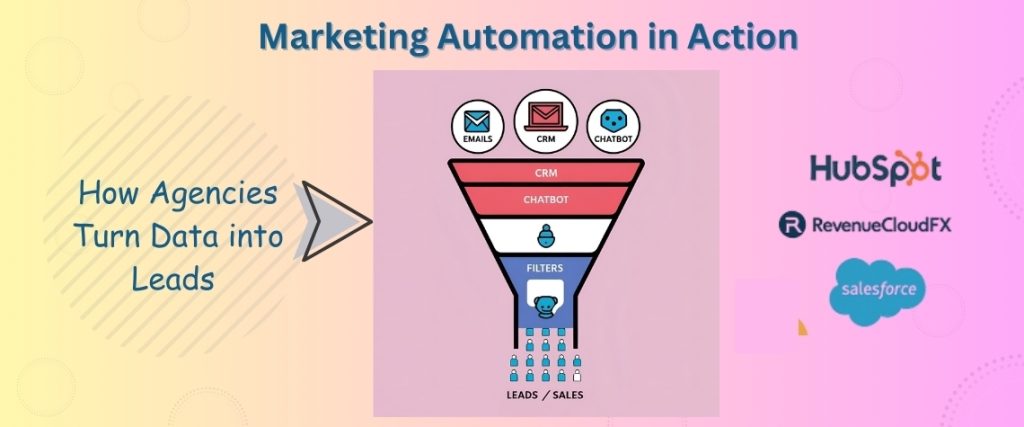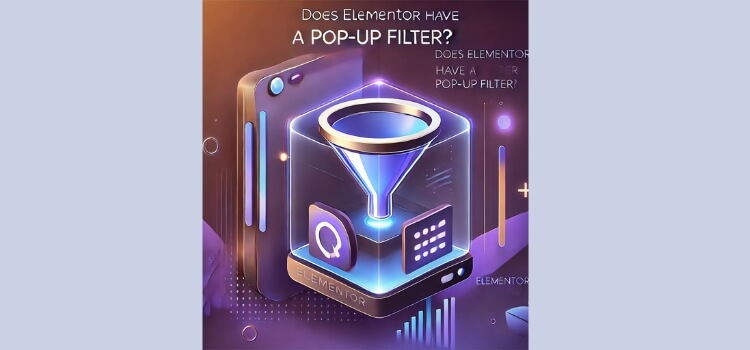In the constantly changing digital marketing industry, many businesses are often confused about where to invest for marketing purposes: Agency vs corporate Marketing.
The short answer? It depends. While agencies bring scalability, expertise, and cost-effectiveness, corporate marketing teams offer brand familiarity, control, and deep industry knowledge.
But before you choose, let’s break down the pros and cons, costs, and real-world performance metrics to see which truly delivers the best client results in 2025.
Contents
ToggleDigital Marketing Agency vs. In-House Marketing Team – Pros and Cons
How to choose your suitable one: Choosing one from digital marketing agency vs corporate marketing team isn’t just about preference. It’s about what works best for your business model, budget, and goals. Let’s break it down.
Expertise & Capabilities
An agency marketing team comes with specialists in SEO (Search Engine Optimization), PPC (Pay-Per-Click), social media marketing, email marketing, content marketing, and web design. It means faster execution, up-to-date strategies, and access to premium marketing tools without additional costs.
Conversely, An in-house marketing team knows your brand familiarity. They get your company’s vision and work closely with other departments, making communication smooth. But keeping them up to date with new marketing trends means constant training and extra costs.
SEO Tip from my perspective: Agencies often have direct access to high-authority industry contacts for link building, while corporate teams may struggle with outreach.
Cost-Effectiveness & Scalability-Agency Vs Corporate Marketing
If you’re focused on cost-effectiveness, agencies might seem pricey at first. However, hiring a full corporate marketing department means covering employee costs, talent recruitment, software expenses, and ongoing training. These expenses can quickly exceed what you’d pay an agency for similar or even better results.
Agencies also offer scalability; you can scale up or down based on your needs. With an in-house team, scaling means hiring (which takes time) or downsizing (which disrupts workflow).
Real-Life Tip for better understanding: Many startups and mid-sized businesses use a hybrid model, keeping a small in-house team for brand consistency while outsourcing SEO, PPC, and content marketing to agencies for better ROI (Return on Investment).
Marketing Performance & ROI
At the end of the day, it’s all about client results. Agencies operate on performance-driven models with clear marketing performance metrics, while in-house teams sometimes struggle with adapting to fast-changing industry trends.
If your priority is fast lead generation and conversion rate optimization, an agency’s access to advanced marketing automation tools can provide a significant advantage.

HubSpot’s Agency Partnership
For a real-life example of how to work with a digital marketing agency, take a look at Six & Flow. They joined the HubSpot Partner Program to stand out in the market and offer their clients more value. Now, as an Elite HubSpot partner, over 90% of their revenue comes from HubSpot clients. You can read more about their success story here for a better idea.
SEO & Digital Advertising – Why Agencies Often Win
When it comes to SEO (Search Engine Optimization), PPC (Pay-Per-Click), and digital advertising, the right strategy can make or break a business.
SEO: Agencies Have the Technical Advantage
Ranking on Google does not just depend on on-page SEO. Technical SEO, link building, content depth, and algorithm updates have a significant impact now.
- Advanced SEO tools – Agencies utilize AI-driven SEO tools like RevenueCloudFX, Ahrefs, and SEMrush for real-time ranking improvements.
- Link-building at scale – In-house teams often struggle to build authoritative backlinks, while agencies have existing outreach networks.
- Algorithm expertise – Google updates its algorithm thousands of times per year. Agencies stay ahead with proactive strategy shifts.
A 2024 Moz report found that businesses using agencies for SEO saw 32% higher organic traffic growth compared to in-house teams.
PPC & Digital Advertising: Agencies Optimize Budgets Better
Running profitable Google Ads, Facebook Ads, and programmatic campaigns requires deep expertise in budget allocation, audience targeting, and performance metrics. Agencies win here because they:
- Optimize ad spend – Agencies track click-through rates (CTR), cost per lead (CPL), and return on ad spend (ROAS) to maximize results.
- Leverage AI bidding strategies – Agencies use Google’s automated bidding and A/B testing to refine PPC performance.
- Reduce wasted ad spend – In-house teams often overspend due to a lack of data-driven adjustments.
A Shopify store increased its ROAS by 74% after switching its Google Ads management from an in-house team to an agency specializing in eCommerce PPC (Source: WordStream, 2024).
Content, Social Media & Email – Who Does It Better?
- Content Marketing: Agencies create data-driven, SEO-optimized content faster, while in-house teams may struggle with scalability and content diversity.
- Social Media Marketing: In-house teams excel in brand voice, but agencies bring trend expertise and paid social advertising skills.
- Email Marketing: Agencies use advanced automation and segmentation (Klaviyo, HubSpot, Mailchimp) to increase open and conversion rates.
Web Design & User Experience (UX) – Agency or In-House?
Your website design and user experience (UX) directly impact conversions, bounce rates, and customer engagement. The question is, who does it better: agency vs corporate marketing?
- Data-Driven Design – Agencies use heatmaps, A/B testing, and analytics to optimize navigation, CTA placements, and user flow.
- Mobile-First & SEO-Friendly Sites – With over 60% of web traffic coming from mobile devices, agencies prioritize responsive design and SEO-friendly site structures.
- Faster Execution – Agencies work with UI/UX designers, developers, and conversion specialists, speeding up design and launch times.
Stat to Consider: A 2024 Google UX study found that 75% of users judge a business’s credibility based on website design, reinforcing the importance of professional web development.
The Role of Conversion Rate Optimization in Lead Generation
A great website isn’t just about looks—it’s about converting visitors into customers. This is where Conversion Rate Optimization (CRO) plays a crucial role.
- In-House Teams: They understand brand messaging well but often lack expertise in CRO best practices, A/B testing, and advanced user behavior analysis.
- Agencies: Specialize in data-driven CRO techniques, improving lead generation, reducing bounce rates, and increasing revenue per visitor.
Real Case Study: A SaaS company working with an agency saw a 37% increase in sign-ups after a CRO-focused redesign, which included optimizing landing pages, simplifying forms, and refining CTAs.

Marketing Automation & Lead Generation – Who Drives Results?
Lead generation isn’t just about getting traffic. It’s about nurturing prospects into paying customers. This is where marketing automation and customer data platforms (CDPs) play a crucial role.
How Agencies Use Marketing Automation to Enhance Lead Generation
- AI-Driven Lead Scoring – Agencies use HubSpot, Marketo, and RevenueCloudFX to identify high-intent leads based on behavior.
- Automated Email & SMS Sequences – Personalized drip campaigns increase open rates (by 29%) and conversion rates (by 33%) compared to generic email blasts (Source: Mailchimp, 2024).
- Chatbots & CRM Integration – Smart chatbots capture leads 24/7, integrating directly with Salesforce, Zoho, or HubSpot CRMs for faster follow-ups.
A B2B SaaS company saw a 42% increase in qualified leads after partnering with an agency specializing in marketing automation and email retargeting (Source: HubSpot, 2024).
The Power of Customer Data Platforms (CDP) in Refining Audience Targeting
- Audience Segmentation – Agencies use CDPs like Segment, BlueConic, and Adobe Real-Time CDP to create micro-targeted campaigns.
- Omnichannel Personalization – By syncing data across email, social media, PPC, and websites, agencies ensure a consistent customer experience.
- Behavior-Based Retargeting – Agencies track customer interactions to optimize ad placements, improving PPC conversion rates by up to 26% (Source: Google Ads, 2024).
Final Verdict: Agencies Deliver Scalable, Data-Driven Lead Generation
In-house teams may handle basic email marketing and CRM management, but for scalable lead generation, AI-driven automation, and CDP-powered targeting, agencies have the upper hand.
Future of Marketing in 2025 – What’s the Best Approach?
As marketing evolves in 2025, businesses must adapt to emerging trends, AI-driven strategies, and new outsourcing models.
Emerging Industry Trends and the Role of AI
- AI-Powered SEO & Content Optimization – Tools like RevenueCloudFX and Surfer SEO analyze search intent, competitor data, and ranking factors to enhance content strategy.
- Predictive Analytics in PPC – AI improves budget allocation, bid adjustments, and audience targeting for better ROI in Google Ads and Facebook Ads.
- Conversational AI for Customer Engagement – Chatbots and AI-driven email marketing increase customer retention and drive personalized lead nurturing.
A Gartner report (2024) predicts that 80% of digital marketing processes will include AI-driven automation by 2026, reducing manual workloads and improving performance.
Predictions for Outsourcing, Hybrid Marketing Models, and RevenueCloudFX
- More Hybrid Marketing Models – Companies will outsource SEO, PPC, web design, and marketing automation while keeping in-house teams for brand storytelling and customer relationships.
- Performance-Based Agencies – Businesses will demand data-backed marketing solutions, choosing agencies that offer ROI-driven pricing instead of flat retainers.
- RevenueCloudFX’s Rise – AI-powered marketing platforms like RevenueCloudFX will gain traction, providing businesses with real-time insights, predictive analytics, and automated lead generation.
A leading eCommerce brand reduced marketing costs by 38% by switching to a hybrid model and keeping content creation in-house while outsourcing SEO and PPC to a specialized agency (Source: Shopify, 2024).
FAQs: Agency vs Corporate Marketing
What is an advertising agency?
Advertising agencies create, plan, and manage paid promotional campaigns across platforms to help brands grow visibility and sales.
What is the difference between a PR agency and a marketing agency?
A PR agency focuses on managing brand reputation and media relations. In contrast, a marketing agency handles lead generation, advertising, and revenue-driven campaigns.
What are the functions of the advertising agency?
Its core functions include campaign planning, creative design, media buying, copywriting, market research, and performance tracking.
Who handles content creation better – agencies or in-house teams?
Agencies offer specialized content creators for SEO, blogs, and ads. At the same time, in-house teams may better align with brand voice and niche topics.
How does content marketing differ from agency vs corporate marketing?
Agencies use data-driven strategies and scalable production, while in-house teams often focus on consistency and long-term brand storytelling.
Conclusion
Now, what is your opinion on the agency vs corporate marketing discussion? In brief, agencies come with the best ROI if you need scalability, AI-driven insights, and high-performance marketing strategies.
Agencies bring expert teams in SEO vs PPC, CRO, and digital advertising with advanced marketing tools without extra software costs and faster execution & A/B testing for data-backed campaigns.
However, corporate marketing teams are still a priority for brand consistency, direct control, and internal messaging. For businesses with highly specialized industries, an in-house team may be the better fit.







